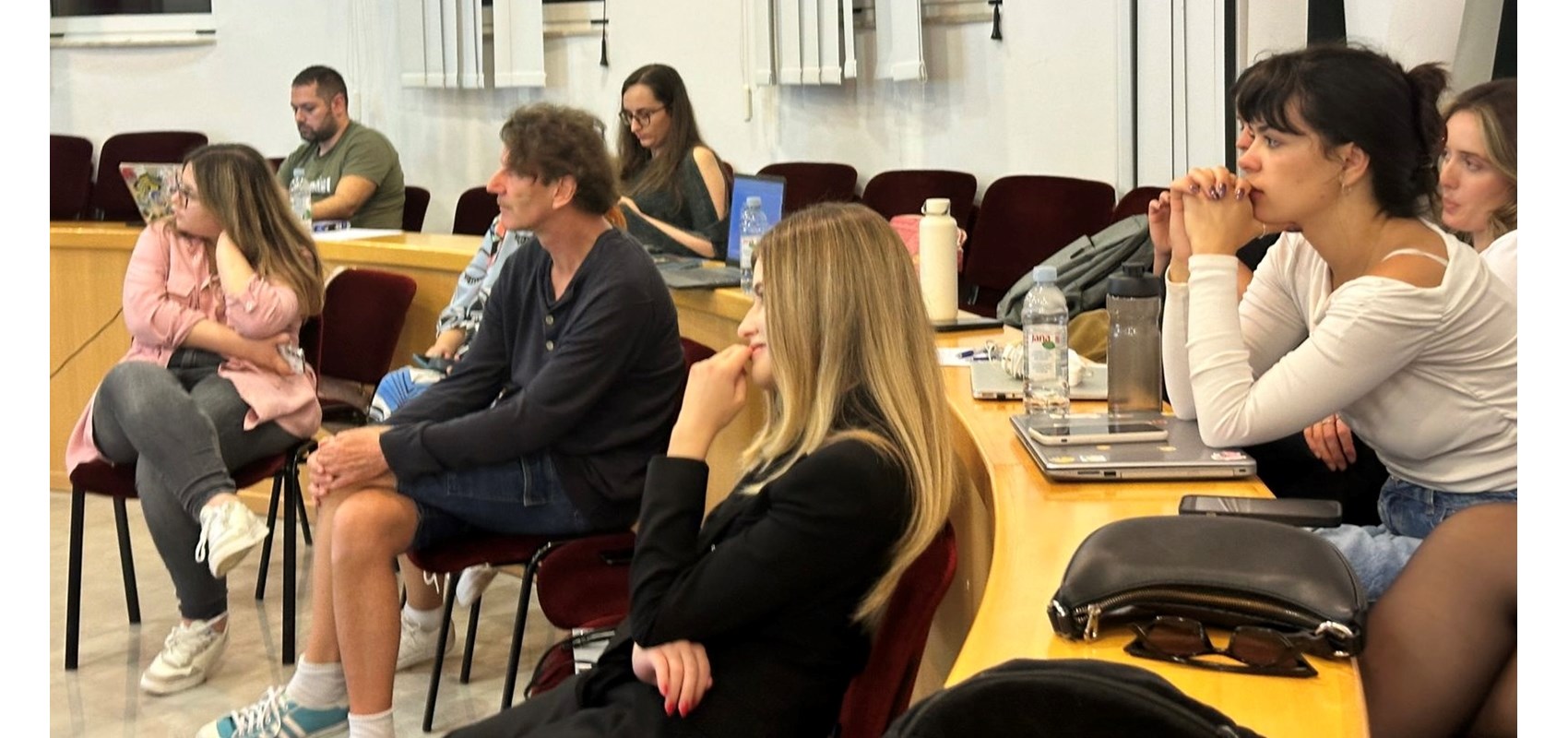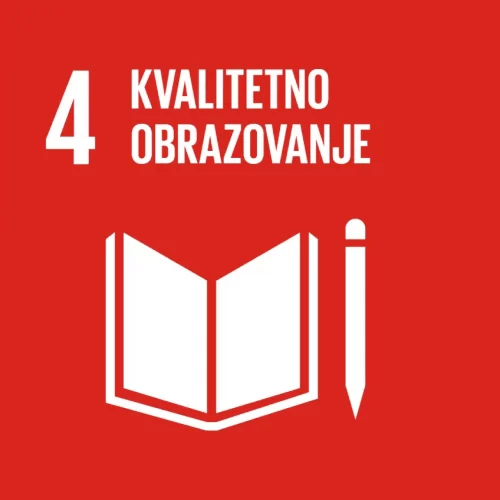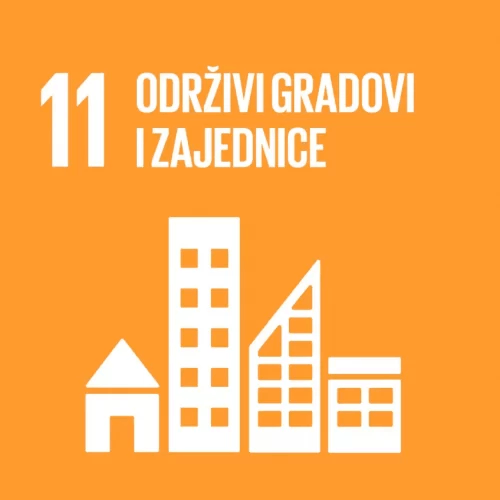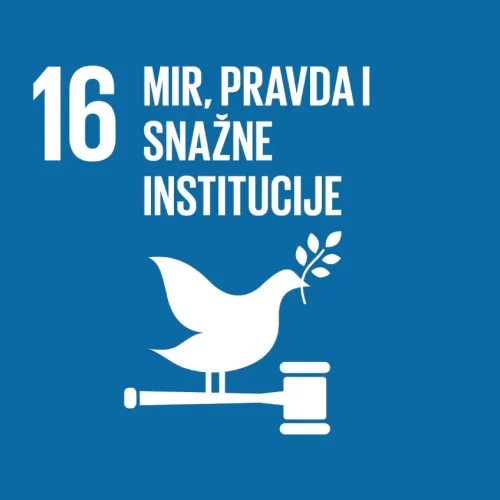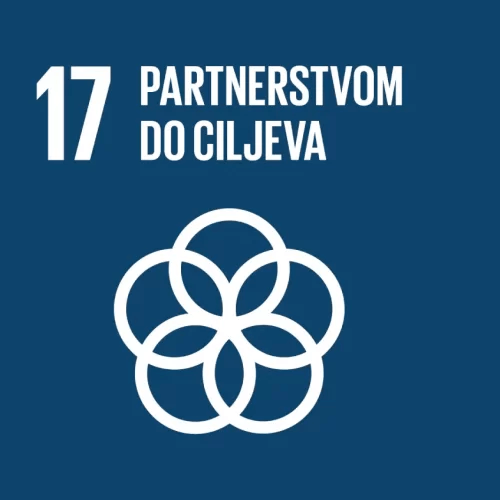In the Istrian town of Vrsar, from October 27 to November 3, 2024, the Erasmus+ Training Course Disinformation Action took place. Our two third-year students, Tea Marušić and Ana Runjić, along with second-year student Marko Vuletić, participated in the event. Disinformation Action is part of the Erasmus+ project conducted by the Croatian association CESI - Center for Education, Counseling, and Research, together with the non-profit portal Libela.org. The course brought together 29 participants from eight countries: Albania, Bulgaria, Cyprus, Montenegro, Croatia, Kosovo, Germany, and Serbia.
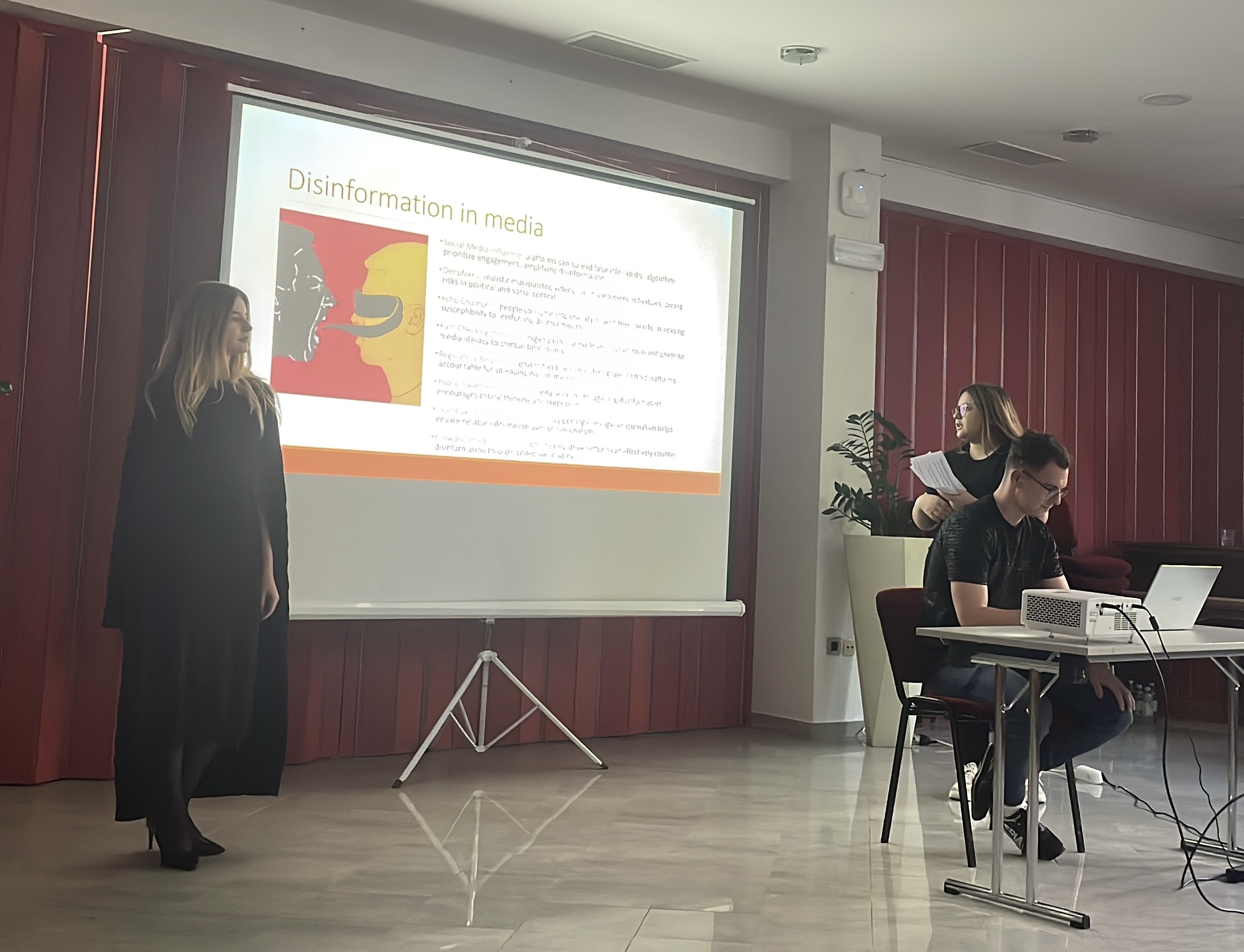
The Erasmus+ Training Course held in Vrsar was designed to empower young people to recognize and combat disinformation, with a focus on topics including gender minorities, LGBTIQ+ communities, migrants, and foreign workers and their rights.
According to research data from the Agency for Electronic Media and UNICEF, only 8% of citizens in Croatia are media literate. The European Union recognized disinformation as a serious threat to citizen information in 2018. Disinformation often targets minority groups in society and is one of the biggest challenges of our time.
The project aims to educate workers and young people about digital tools for fact-checking and narratives surrounding disinformation, especially those aimed at minority groups in society. Our students prepared a presentation titled Disinformation around the Countries: Case Study - Croatia, showcasing disinformation in Croatian society targeting minorities based on race, class, or gender. Through examples, they demonstrated the most common media narratives and highlighted fact-checking organizations that promote verification of such information.
The program included a variety of educational activities where participants learned to use digital fact-checking tools, such as search engines, tools for verifying the authenticity of photos and videos, and methods for assessing the reliability of sources. Participants also contributed to creating a brochure titled How to Respond to Disinformation Targeting Minority Groups in Society. The brochure’s goal is media literacy and raising awareness among young people about different social topics and narratives encountered in the media.
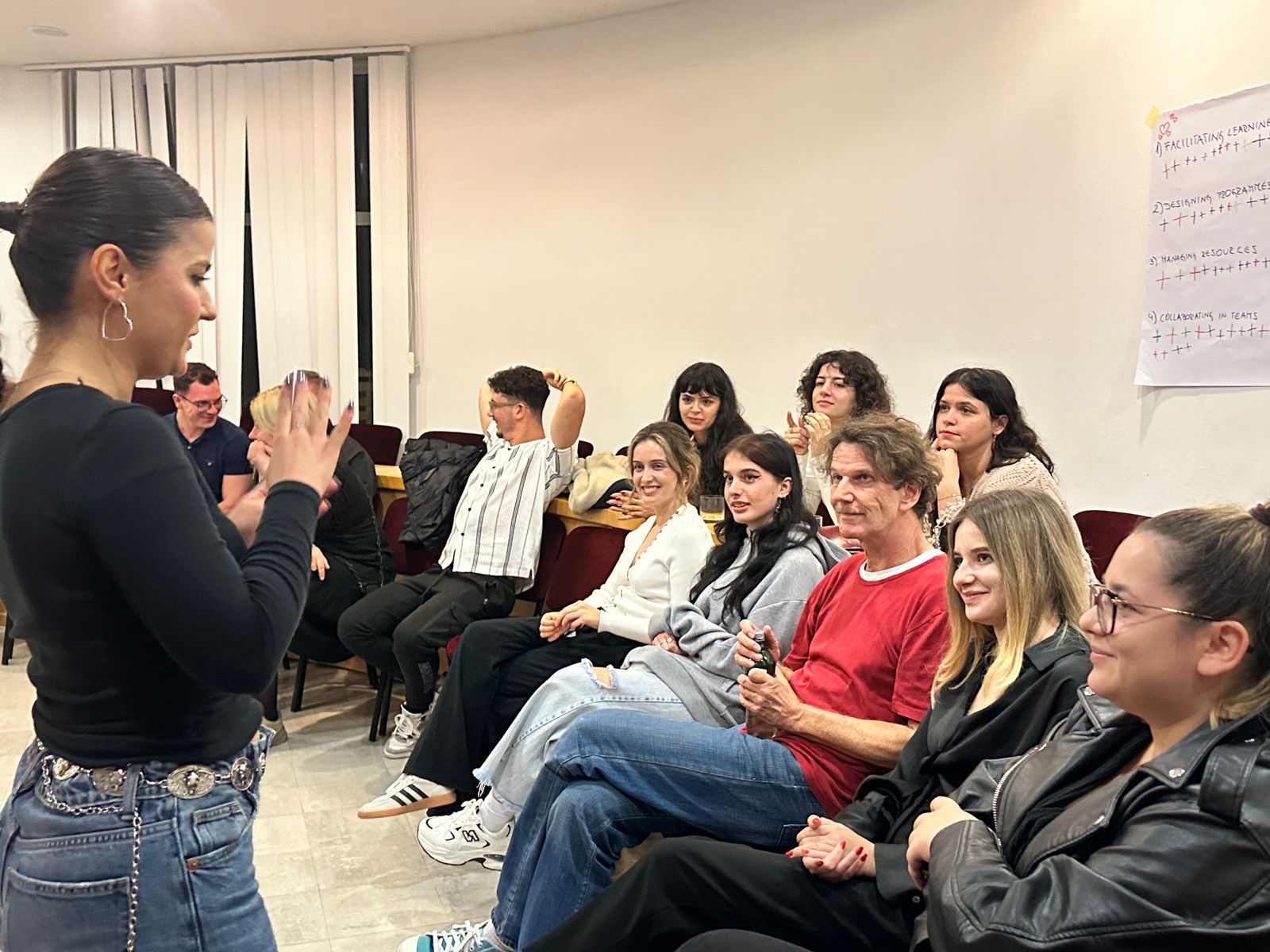
For our students, participating in this project was a valuable achievement. They expanded their knowledge of media literacy and recognizing disinformation, while also gaining many new connections with experts and participants from other countries. This training demonstrated the importance of mutual cooperation and knowledge exchange in building a society resilient to disinformation. We thank the organizers for providing this enriching experience to our students!
You can read a statement from our student Ana Runjić at this link.
Tea Marušić i Ana Runjić

The Erasmus+ Training Course held in Vrsar was designed to empower young people to recognize and combat disinformation, with a focus on topics including gender minorities, LGBTIQ+ communities, migrants, and foreign workers and their rights.
According to research data from the Agency for Electronic Media and UNICEF, only 8% of citizens in Croatia are media literate. The European Union recognized disinformation as a serious threat to citizen information in 2018. Disinformation often targets minority groups in society and is one of the biggest challenges of our time.
The project aims to educate workers and young people about digital tools for fact-checking and narratives surrounding disinformation, especially those aimed at minority groups in society. Our students prepared a presentation titled Disinformation around the Countries: Case Study - Croatia, showcasing disinformation in Croatian society targeting minorities based on race, class, or gender. Through examples, they demonstrated the most common media narratives and highlighted fact-checking organizations that promote verification of such information.
The program included a variety of educational activities where participants learned to use digital fact-checking tools, such as search engines, tools for verifying the authenticity of photos and videos, and methods for assessing the reliability of sources. Participants also contributed to creating a brochure titled How to Respond to Disinformation Targeting Minority Groups in Society. The brochure’s goal is media literacy and raising awareness among young people about different social topics and narratives encountered in the media.

For our students, participating in this project was a valuable achievement. They expanded their knowledge of media literacy and recognizing disinformation, while also gaining many new connections with experts and participants from other countries. This training demonstrated the importance of mutual cooperation and knowledge exchange in building a society resilient to disinformation. We thank the organizers for providing this enriching experience to our students!
You can read a statement from our student Ana Runjić at this link.


